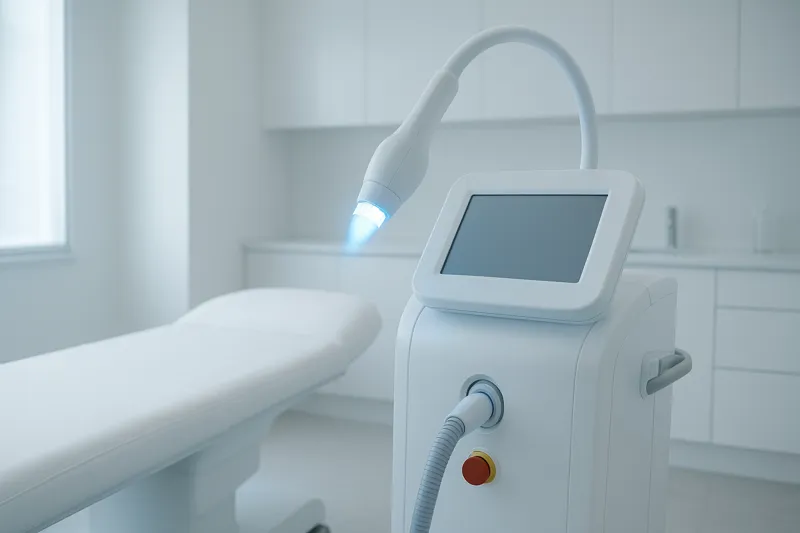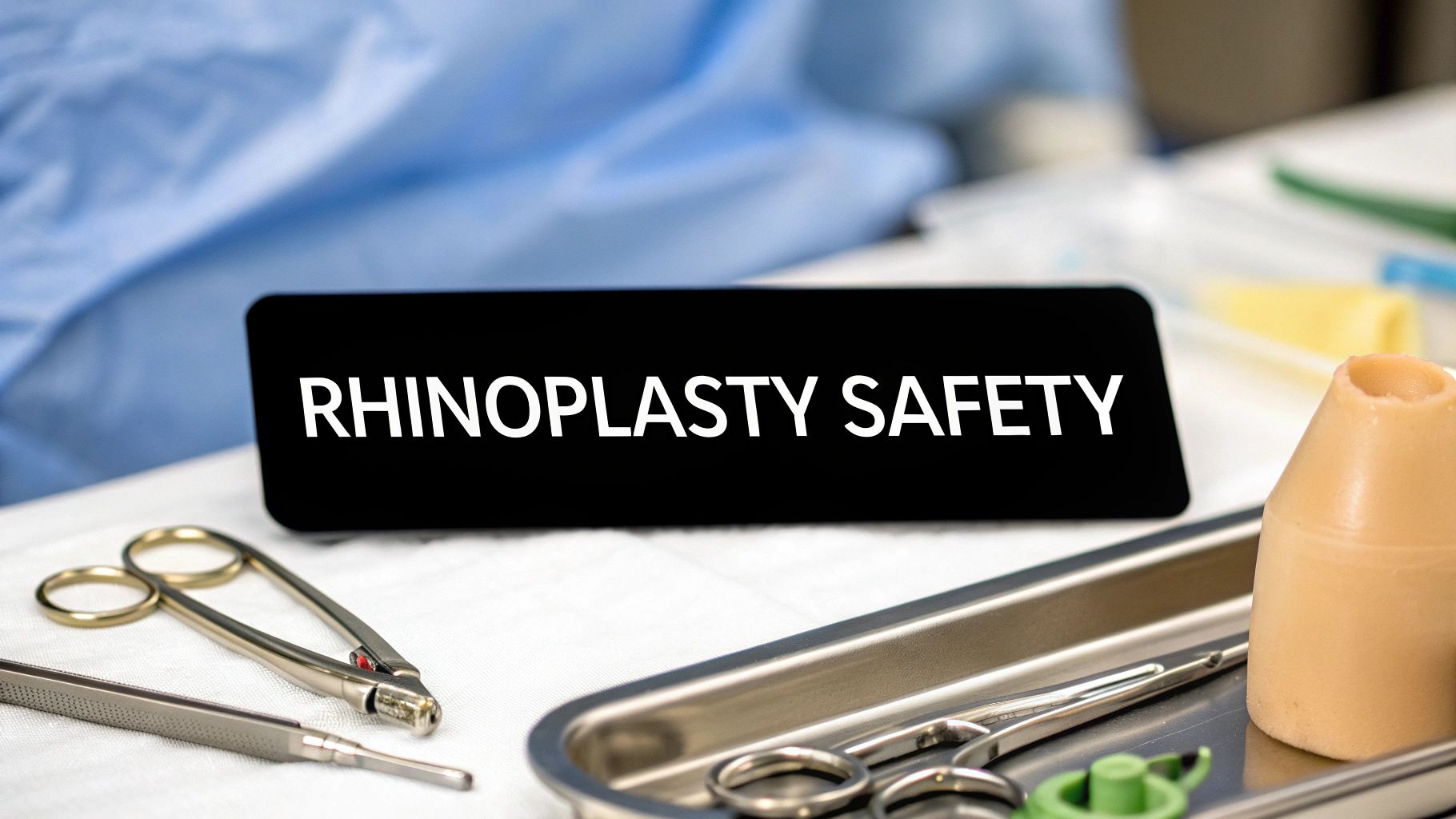
January 19, 2026
What Is Gynecomastia Surgery A Guide to Restoring Chest Contour
Considering what is gynecomastia surgery? This guide explains the causes, surgical techniques, recovery process, and how to choose the right surgeon for you.
Oct 14, 2025

Surgical procedures, often daunting and life-altering, can pave the way for incredible transformations. This article explores inspiring patient success stories that highlight the resilience, determination, and medical advancements leading to profound physical and emotional recoveries. These narratives reflect not just surgical expertise but the powerful role of preparation, support, and personal commitment in achieving lasting health improvements.

Several patients have experienced transformative health and lifestyle improvements through bariatric surgery. Donna Stanek underwent gastric sleeve surgery in 2017, losing 89 pounds and maintaining this weight loss for six years. Her health greatly improved, including reductions in high blood pressure and fatty liver. Molly chose a laparoscopic sleeve gastrectomy in 2021, shedding over 120 pounds. This allowed her to regain mobility, reduce chronic pain, and enjoy family life with increased energy. Patrice Minix, who struggled with obesity and obesity-related issues, lost substantial weight post gastric sleeve surgery, which enabled her to perform daily tasks like tying her shoes and improved her overall vitality. Aaron Grossi’s gastric bypass not only facilitated weight loss but also helped manage his diabetes and supported his mental health journey and gender transition.
Bariatric surgery has a success rate ranging from 68% to 74%, with patients typically losing 50-75% of their excess weight—often averaging at least 100 pounds lost. However, sustained weight loss after surgery requires strong commitment to lifestyle changes. Essential strategies include prioritizing protein in the diet, partnering with accountability buddies, consistently journaling food intake and physical activity, and practicing portion control. These behavioral adaptations combined with medical follow-up are crucial to maintain the results of surgery over the long term. The courage to undergo surgery paired with comprehensive support and lifestyle discipline often results in improved health, confidence, and quality of life for patients. For detailed statistics and lifestyle factors related to bariatric surgery success, see this resource on the long-term success of bariatric surgery.

Patients enduring severe medical conditions often showcase remarkable resilience following complex surgical interventions. Elijah Williams, who has Marfan syndrome, underwent four major heart surgeries, including emergency operations for life-threatening aneurysms and installation of an implantable cardioverter defibrillator (ICD). Despite ongoing physical and mental health difficulties, Elijah’s journey illustrates enduring strength and the critical role of community support in managing chronic conditions.
Dennis endured a traumatic skull injury requiring neuroplastic surgery with custom implants. His recovery was complete, including restoration of skull shape and protection for brain function, demonstrating the success possible with advanced reconstructive surgery (Dennis's neuroplastic surgery story).
Cynthia Porcari faced adult hip dysplasia, leading to debilitating pain. After an initial arthroscopic surgery and subsequent diagnosis, she underwent a complex procedure called periacetabular osteotomy. With dedicated physical therapy, she regained mobility and returned to activities like hiking within a year, highlighting both physical and emotional recovery (Cynthia Porcari's hip dysplasia journey).
These cases exemplify specialized surgical techniques addressing unique and severe conditions:
| Patient | Condition | Surgery | Outcome |
|---|---|---|---|
| Elijah Williams | Marfan syndrome | Multiple heart surgeries + ICD implantation | Long-term survival managing health risks (Elijah Williams' Marfan Syndrome Surgeries) |
| Dennis | Severe skull injury | Neuroplastic surgery with custom implants | Full healing, brain protection restored (Dennis's neuroplastic surgery story |
| Cynthia Porcari | Adult hip dysplasia | Periacetabular osteotomy | Pain relief, mobility regained, return to hiking (Cynthia Porcari's hip dysplasia journey |
Surgery for complex diseases goes beyond physical healing, often requiring patients to overcome significant emotional challenges. Elijah's story underscores ongoing mental health struggles alongside his physical recovery, emphasizing the need for psychological support (Mental and Physical Recovery from Surgery.
Dennis and Cynthia’s experiences illustrate how comprehensive care and rehabilitation contribute to restored quality of life and renewed confidence. Their stories provide inspiration, showing that with advanced surgical care and determination, patients can overcome daunting health hurdles and reclaim active, fulfilling lives (Dennis's neuroplastic surgery experience, Cynthia Porcari's hip dysplasia journey.

Pre-surgery preparation, known as prehabilitation, plays a crucial role in enhancing recovery outcomes. Programs such as the Michigan Surgical and Health Optimization Program (MSHOP) and Preoperative Wellness and Enhanced Rapid Recovery (POWERR) focus on improving patients' physical fitness, nutritional status, and respiratory function before surgery. These efforts reduce risks of postoperative complications and shorten hospital stays.
Key strategies include increasing patient activity through exercises like walking or stationary biking, providing nutritional support, managing smoking cessation to improve wound healing, and using breathing exercises to prevent respiratory complications. Addressing anxiety with relaxation techniques positively affects the body’s healing response. Collectively, these prepare patients physically and mentally, promoting smoother postoperative recovery.
Successful recovery after surgery depends heavily on patient education and tailored rehabilitation. Clear communication about what to expect and how to manage care at home reduces anxiety and improves adherence to recovery plans. Assessing and adapting the home environment and arranging necessary support equipment ensure patients can manage daily tasks safely.
Early initiation of physical and occupational therapy is vital. These therapies help regain mobility, strength, and independence, directly contributing to faster and more complete healing. Self-care activities, such as grooming and managing bowel health, also positively influence recovery.
Comprehensive rehabilitation toolkits and coordinated care among healthcare teams support patient progress and prevent complications, ultimately leading to improved surgical results and patient satisfaction, as detailed in resources like How to Improve Surgery Recovery and Post-Op Outcomes and How to Plan and Prepare for Post-Surgery Recovery: Gaby's Story and Tips.
Surgeon experience is crucial in determining patient outcomes. Research shows that high-volume surgeons—those who perform a greater number of complex surgeries annually—are linked to significantly lower mortality rates. For example, surgeons who conduct more than 162 heart bypass procedures per year help reduce the risk of death post-operation. Similarly, hospitals that maintain minimum volume standards for complex surgeries see overall improved patient survival rates. This emphasis on experience ensures that patients benefit from refined surgical techniques and extensive practice. Moreover, patients feel reassured knowing their surgeon is highly skilled and experienced. For more details on this, see Experience Counts for Successful Surgical Outcomes.
Patient testimonials reveal a deep appreciation for surgeons who combine technical expertise with compassionate care. Individuals praise surgeons such as Dr. Prasad and Dr. Capone for their professionalism, clear explanations, and attentive bedside manner. These qualities contribute not only to successful surgical outcomes but also to improved emotional well-being and confidence. Testimonials cover a spectrum of surgeries, from complex organ transplants and bariatric procedures to joint reconstructions and aesthetic enhancements. Patients report better physical health, regained mobility, and heightened self-esteem following their treatments. Explore more patient stories at Patient Reviews of Dr. Prasad, Success Stories Pittsburgh, and Surgical Patient Testimonials.
Numerous surgical procedures contribute significantly to enhancing patients' quality of life. These include orthopedic surgeries such as knee reconstruction and hip replacement, bariatric surgeries like gastric sleeve and bypass, neuroplastic surgeries with custom implants, organ transplants, and reconstructive or aesthetic surgeries. Each procedure addresses specific medical conditions, leading to restored function, reduced pain, and increased independence. Collectively, these surgeries underscore the broad spectrum of surgical expertise available and the transformative impact surgical care can have on individuals' lives. See examples and patient stories in Dennis's Neuroplastic Surgery Story, Donna Stanek's Gastric Sleeve Surgery Journey, Marathon Runner Recovery and Orthopaedic Surgery, and Hip Replacement Recovery.

Orthopedic surgery success stories abound with patients regaining mobility and returning to their active lives. For instance, Dr. Kevin Richardson, a marathon runner, successfully recovered from a stress fracture. Mia, an active student athlete diagnosed with scoliosis, was able to resume her sports after corrective surgery. Many patients have achieved full return to activity following total knee replacement, ACL reconstruction, and meniscal tear repairs, highlighting the effectiveness of modern orthopedic interventions. For more inspiring stories, see Patient Success Stories and Orthopaedic Surgery Patient Reviews.
Recovery from orthopedic surgeries often involves tailored rehab plans including physical and occupational therapy. Early intervention, muscle strengthening, and pre/postoperative preparation play crucial roles in regaining strength and function. Patients report improved confidence and quality of life, with many resuming rigorous physical activities such as football, hiking, and skiing—all thanks to dedicated rehabilitation programs and expert surgical care. Learn more about Improving Surgery Recovery and How to plan and prepare for post-surgery recovery.
On the transplant front, remarkable stories emphasize patient resilience and medical advances. Tolisha Alexander was the first at UNC Hospitals to receive a double lung transplant following severe COVID-19 complications, demonstrating life-saving transplantation capabilities for critical cases. Such stories not only showcase technical surgical feats but also inspire hope through successful long-term management and recovery. For more, visit UNC Medical Center patient stories and UCLA Health Surgical Services patient stories.
Surgical recovery is both a physical and emotional journey. Patients recount feelings of renewed health and mental well-being alongside physical healing. Support systems, including family, specialized care teams, and prehabilitation programs, contribute significantly to positive outcomes. These narratives illustrate that beyond the operating room, emotional resilience and comprehensive care are pivotal for full restoration of health and lifestyle. Explore insights on Mental and Physical Recovery from Surgery and the benefits of preoperative preparation.

Surgery often marks the beginning of profound mental and emotional growth, not just physical healing. Patients like Aaron Grossi demonstrate that surgical interventions, such as gastric bypass, can be deeply entwined with mental health improvements—enabling acceptance of self and transformative life changes. For Aaron, surgery facilitated not only weight loss but also important personal milestones in his gender transition journey, illustrating how physical change can empower identity and well-being (Aaron Grossi's gastric bypass story).
Elijah Williams’s experience with multiple heart surgeries linked to Marfan syndrome highlights the mental challenges that can persist post-surgery. Sharing his story has helped him connect with others, illustrating how community and shared experiences are vital for emotional recovery and ongoing support (Mental and Physical Recovery from Surgery.
Many patients report increased confidence and motivation following surgeries such as weight loss procedures or reconstructive operations. This boost in self-esteem fosters a desire to engage fully in life—improving happiness and encouraging healthier lifestyle choices. For example, patients often adopt new routines involving exercise, dietary changes, and social activities that enhance both mental and physical health (Surgical Patient Testimonials).
A recurring theme among patient stories is the importance of family, friends, and healthcare teams. These support networks offer accountability, encouragement, and motivation that are crucial for sustaining long-term health improvements and emotional balance. Patients credit relationships with loved ones and medical staff alike for their resilience and success (Donna's gastric sleeve surgery journey).
Surgical experiences often inspire patients to take active roles in their health journeys. Committing to lifestyle adjustments such as journaling food intake, portion control, and maintaining physical activity are common. Weight loss surgery patients, like Donna Stanek, underscore how following medical advice and embracing these changes result in lasting transformation (Donna Stanek's gastric sleeve surgery.
Overall, surgery can trigger a holistic transformation—mental, emotional, and social—that empowers patients to live happier, healthier, and more fulfilling lives.
The remarkable stories of patients who have undergone diverse surgical procedures reveal the profound impact of modern medical care combined with personal courage and comprehensive support. From sustained weight loss to recovery from complex surgeries and organ transplants, these successes underscore the importance of preparation, skilled surgical teams, and rehabilitation. Beyond physical healing, surgery fosters renewed confidence, mental well-being, and an empowered approach to life. These transformations inspire others facing similar health challenges to embrace hope and possibility, highlighting surgery as a vital tool for achieving lasting, positive change.

January 19, 2026
Considering what is gynecomastia surgery? This guide explains the causes, surgical techniques, recovery process, and how to choose the right surgeon for you.

January 19, 2026
Exploring the Advancements and Advantages of Non-Invasive and Laser Cosmetic Procedures

January 18, 2026
Is rhinoplasty dangerous? We answer your question with a clear breakdown of real nose job risks, safety statistics, and how to ensure a successful outcome.